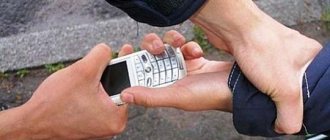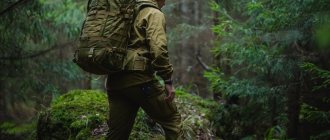Survival in the city and during emergencies: 15 skills to save lives
Some people think that survival skills can only be applied in the wild. At the same time, such experience and knowledge will help to survive in the city, since the city is a kind of concrete jungle. At times it is a wilder place than the Amazon jungle or the Karakoram mountains, as terrorist attacks, civil unrest, earthquakes, hurricanes, and floods can be expected here.
The government is not always able or ready to overcome emergencies quickly and help every person and every family in these and other situations. Therefore, while the army and the Ministry of Emergency Situations are saving those they can save, and also trying to protect technology, infrastructure, supplies, etc. from loss and destruction, it is necessary to take the initiative into your own hands and ensure your personal safety and the safety of your loved ones.
In addition, it is necessary to plan for various situations and solutions to them, from instantaneous and one-day options, to options that can last for weeks and months. To do this, you should acquire some knowledge, skills, experience, equipment, equipment and supplies. Many preppers know about this, we’ll just remind you of such things.
How to survive in the city: basic skills and tools
Survival food supply
It is necessary to study issues related to food storage conditions. Renew food supplies in a timely manner in case of emergencies - for example, in the event of a local nuclear disaster, which may occur due to an accident at a nearby nuclear power plant or due to an accident during the transportation of radioactive elements by sea, roads and railways.
Stocking and purifying water for survival
If a person can survive without food for 3 weeks, then without water - 3 days. Therefore, storage, replenishment and purification of water supplies come to the fore. Always keep a 10-day supply for each family member (2 liters per day per person - for a family of 3 people 60 liters or three 20-liter canisters). It is also necessary to have filters for the water that you will obtain if help does not come after 10 days. You should also know how to collect rainwater and determine where to dig wells.
Mobile emergency survival kit
It is necessary to organize such a wearable kit and store it at home in a safe place, regularly updating the replacement elements. More information about such kits can be found in the sections “Survival in the Apocalypse” and in the section “NAZ, survival kits”. At a minimum, such a set should be designed for 3 days. You will need it if for some reason you decide to leave the scene of a disaster in the city. In addition, such a set is a good emergency supply in the house.
First aid skills for survival
You need to know what and how to do in case of the most common types of injuries, illnesses, etc. For example, you must be able to reduce dislocations, fix and bandage fractures, perform artificial respiration, etc. According to the author of www.extreme-voyage.ru, it is necessary to have skills - you can simply hang knowledge on your wall as a decoration, it will not help you.
Mindfulness and Observation for Survival
Be aware of your surroundings. A surge in crime and civil unrest can find you at home and on the road, on the street and in the office. You can be followed and hunted in order to kidnap you or your children (about kidnapping - here). Detect suspicious cars, suspicious people, suspicious events. The main thing here is not to translate ordinary security skills into paranoia, just prepare for the worst, hoping for the best. Also create a security perimeter around your home.
Weapon Mastery for Survival
If it is possible to legally store weapons at home, do so. But, in addition to storage, you need to own a weapon - attend training.
Self Defense Skills for Survival
Self-defense is one of the most important skills in the city. There are a lot of people around, and often we cannot understand which of them will attack you to take possession of jewelry, a wallet, etc. In addition, during an emergency, you can be attacked for a bottle of water or a pack of cookies. Therefore, it is necessary, at a minimum, to know some self-defense techniques.
Learn skills from different professions to survive
The more skills you have, the better. It is advisable to know how to fix the plumbing, heating system, electrical appliances, repair a hole in the wall, light and repair the stove and fireplace. It is necessary to have a minimal understanding of radio stations, electric generators, filtration systems and autonomous heating systems. You also need to know how to change a tire and “light” the engine.
Improve Communication Skills for Survival
Communication will be needed in any case. You will have to negotiate with people who try to enter your house, on the street when exchanging goods (barter) during an emergency, etc. Economics will remain one of the foundations of existence even after a natural or man-made disaster.
Know how to grow vegetables and fruits for survival
If your “autonomy” after an emergency lasts for months, this will mean that a power supply situation has occurred. By the way, some Russian survivalists translate “BP” from English as “Big Arctic Fox”. In fact, “BP” is an automatic translation of the common US abbreviation for American survivalists SHTF, which stands for “S**t Hits The Fan” (Russian: “End of Fun”, there is also a variant of “Damn Fun”).
So, you will have to survive in isolation from civilization, like during the Apocalypse. To find food, you will have to become a farmer - learn the skills of growing fruits, vegetables and keeping animals. For example, creating vertical gardens in a limited space, etc. You also need to know how to cook food. Naturally, first you need to have at least a small amount of seeds in the house.
Learn to dispose of waste for survival
In the event of an emergency, sewerage systems and companies for the removal and disposal of garbage and other waste will stop working. To eliminate the possibility of diseases arising from human waste, immediately determine the location of its burial. It’s better to be at a safe distance from the house in a hole. Do not neglect this factor - most diseases arise precisely due to lack of hygiene.
Save money for survival
In most cases, an emergency is not an Apocalypse. There will always be people to help you and places to go. In addition, funds may be needed to purchase ammunition, weapons, medicine, food and water. Therefore, it is necessary to have funds on hand to pay for services and travel through checkpoints. In our case, these are gold trinkets and alcohol. Maybe some paper money.
Learn to be different from others
Nice hat, “cool outfit,” etc. - it's good and fun. But in an inadequate crowd or on the street during an emergency, it is precisely such a person who will attract the attention of aggressive people. Therefore, do not cause rejection, hatred, envy, misunderstanding among people - try to look and act like everyone else during an emergency. At a minimum, don't shout or wave your "appendages."
Exercise
All your skills, knowledge, tools, supplies and equipment are worthless without regular training. You can easily get lost in events, panic, give up, lose touch with other people, etc. So, remember to practice different survival scenarios with your loved ones.
Psychological preparedness
Psychological readiness to resolve emergencies is the most important factor for survival in a natural disaster, catastrophe or in situations involving the human factor. Only if you are ready to act adequately will your body movements be accurate and effective. This is especially important since an emergency can occur at any second. So just be prepared and calm.
The author of www.extreme-voyage.ru adheres to only two rules:
1. Nothing should throw you off balance. 2. Always rely only on your own strengths.
I would like to add that survival experts agree that in a survival situation, only 10% of a favorable outcome depends on the availability of skills, knowledge, tools, equipment and supplies, and the remaining 90% comes from psychological readiness for decisive action.
Always survive!
Source: www.extreme-voyage.ru OUR FACEBOOK PAGE: WE ARE VKONTAKTE:
Survival in the city: 12 tips from homeless people on how to survive on the streets
We bring to your attention a translation of the article “12 Tips: How to Be Homeless and Survive,” which will tell you about survival in the city from the point of view of the homeless. It is they, who are constantly in search of food, water and shelter, that can be called real survival gurus. So…
The content of the article
Survival in the city: 12 tips from homeless people on how to survive on the streets
Author: Dan Brown
Did you know that almost a third of US residents live paycheck to paycheck? It's scary, but there's nothing you can do about it - people really aren't as financially prepared as they think. And just one multi-digit medical bill can bring a stable and established life to the brink of disaster. Therefore, the art of survival in the city is something that can be useful to each of us.
Lack of home does not equate to a slow and painful death from hunger, cold and other causes. But only if you are skillful, resourceful and know how to use everything you have at hand.
Yes, it is very easy to look down on the homeless and judge them, but this is a big mistake. After all, almost anyone could find themselves in their place, especially in a situation of a large-scale disaster. Fortunately, you don't need to personally ask these comrades about their art, since some enthusiasts of their craft have already done this for you. And we will now tell you about surviving in the city without having a reliable and permanent shelter, that is, your own home. Here are 12 key tips from homeless people on how to survive on the streets.
Layered clothing
Keeping warm is the most important thing when you live outside. Even summer nights can be cold, and only layered clothing can save you in this situation.
There should be at least 3 layers, and preferably more. The inner layer is the one directly adjacent to the skin, an insulating layer that helps retain heat, and an outer layer that protects from wind, snow and rain.
A bulky winter coat only seems like a good choice - instead, several lightweight jackets that can be replaced as they get dirty and worn out work much more effectively. They are thinner, so they dry faster, which is also important.
2. Newspapers
This is literally the basics of survival in the city - using newspapers for additional insulation. Crumpled newspaper helps create an air insulating layer, and it itself has low thermal conductivity. In addition, these newspapers can then be used as kindling or as toilet paper.
Place to sleep
Just because you don't have a home doesn't mean you don't have a more or less permanent place to sleep. These can be homeless shelters, abandoned or simply uninhabited buildings.
If you decide to take a liking to some abandoned building, always remember safety. They, you know, can collapse. Therefore, you need to sleep either near the support beam or closer to the exit.
In addition, it makes sense to sleep in a group. The police will most likely check a single homeless person, but not a crowd. They say: “this is local, of no interest.” In addition, loneliness increases the risk of being attacked by other homeless people, outcasts, maniacs and drunken teenagers. So staying in a group is beneficial. But you need to remember that you cannot just break into the territory of other homeless people and encroach on their resources - this is fraught with conflict, and there are more of them.
Heat preservation
Approximately 50 percent of the energy we get from food can be used to maintain heat. But this is not enough. In any case, in winter you have to eat more to maintain your temperature. And your resources are limited. Therefore, it is necessary to take additional measures to preserve heat.
- A layer of cardboard acts as insulation between you and the cold floor. This is an additional plus to the protection provided by layered clothing.
- Mylar blankets, mats, small tents - all this helps to insulate. Especially in cases where you are not afraid that your property will attract undue attention to you.
- Socks and gloves. Better yet, several pairs of socks and gloves, since fingers get frostbitten the fastest. As a last resort, remember that an ordinary bottle of hot water makes a good heating pad.
5. Cleanliness
You may not have access to a bathroom, shower or soap. But that doesn't mean you shouldn't try to stay clean. Even the most ordinary wet wipes will help in this matter. In addition, most public toilets have warm water, which can be used for some hygiene procedures.
Cleanliness not only helps to maintain health, but also maintains morale. “I’m clean, which means I haven’t completely sunk.” In addition, it is much easier to survive on the city streets by being neat and clean - more people will be willing to help you if necessary.
Don't forget about the most commonplace baking soda - this is the simplest cleaning product available to you in any situation. If mixed with water, it will replace soap, shampoo, and toothpaste. So a pack of soda should always be in your inventory.
Using improvised means
You have no idea what people regularly throw into landfills. Digging through garbage can be disgusting, but you have to learn, since this moment is extremely important for the survival of a homeless person in the city. In addition, it is worth understanding that each thing has several uses - you just need to come up with them.
And the more of these things you can discover, the better. But you’ll have to carry them on yourself, so you’ll have to keep a balance between excessive accumulation and low load on your back.
Carry everything with you
If you left something somewhere, that’s it, you can mentally say goodbye to this matter. After all, next to you are exactly the same desperate comrades who will not hesitate to use other people’s things. So - carry everything with you. Or hide it so well that no one discovers your belongings. Which is more difficult.
8. First aid kit
You never know what can happen. And the homeless, for the most part, do not have access to modern medical facilities (this is where the Americans are out of luck - in our country, for example, the homeless are required to provide at least some kind of help; I still remember these personnel in the reception department, although many years have passed - approx. lane). Therefore, a personal first aid kit can be your only salvation.
Antibacterial ointments, antiseptics and painkillers are a must. But it’s even better to pack your first aid kit the same way you would pack your survival kit. This is exactly what you should spend all the little money you can earn on.
Product stock
You won't always have money to buy food. And stores, especially in an emergency, will also be inaccessible. Therefore, stocking up on food that can withstand long-term storage is a great idea. Canned meat and instant soups are your choice. They weigh little, fill well, and last a long time.
Willingness to leave
This is the basis for the survival of a homeless person - the readiness to break away from a seemingly familiar place at any moment. If only because they are chased by both the police and other homeless people. Therefore, you must be ready to leave at any time and not return. This is why you should carry everything you need on yourself. And this should be done as discreetly as possible, otherwise you can become a victim of looters.
Avoiding Conflicts
At any cost - your survival in the city depends on it. The situation when any injury or scratch can become a source of infection forces you to be especially careful even in situations where you are physically superior to a possible opponent. In addition, we must not forget about the legal aspects - the police are unlikely to be on your side, even if you end up injured. Therefore, avoid conflicts at all costs. You can even give away the things you have stored - it will be much easier to restore them than your health.
Merge with the crowd
Dirty homeless people who smell are the lowest category of homeless people. You can find yourself next to a person without a home - and never suspect it. And all because they know how to mix with the crowd.
After all, homeless people know very well that if you look different from everyone else, you can attract unwanted attention. Thieves, robbers and other outcasts are much more likely to attack those who give the impression of being weak and socially unprotected. Therefore, try not to stand out - clothes may be worn, but must be clean. So is the backpack. So are the shoes. It's better to look poor than homeless.
You can prepare for all of the above points in advance. If not materially and physically, then at least morally. And yes, you can and should learn to survive in the city now – you never know what can happen.










